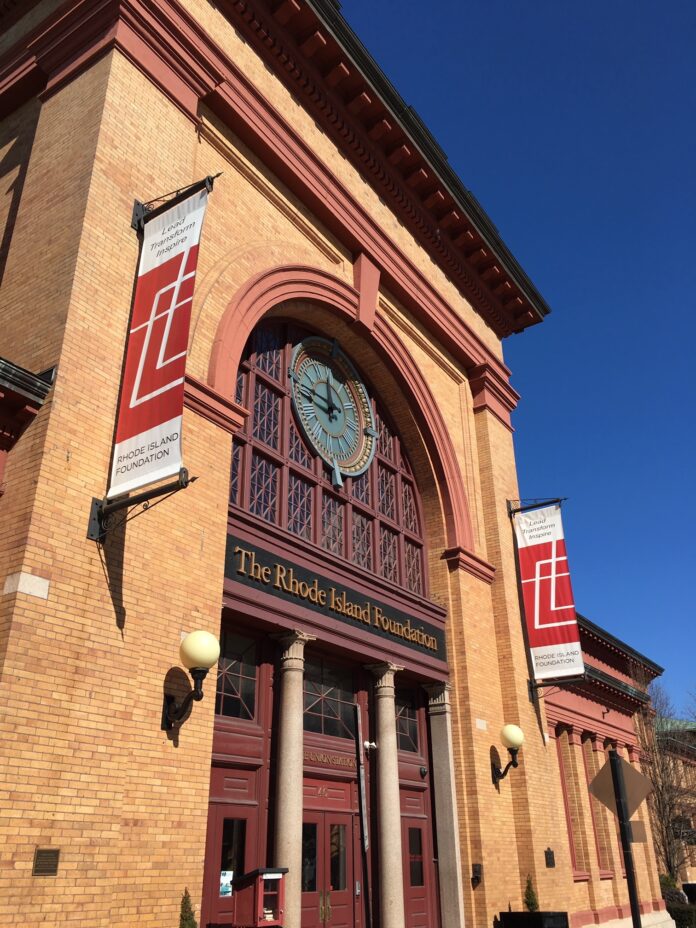PROVIDENCE – Housing, behavioral health, workforce development and small business took top priority in the Rhode Island Foundation’s recommendations for spending the state’s American Rescue Plan Act funding, the Foundation announced on Tuesday morning.
Combined with neighborhood trusts and immediate relief, these priorities comprise the “six key areas” the Foundation outlined for the state’s recovery from the COVID-19 pandemic and preexisting issues.
The recommendations, totaling $1.065 billion, include spending $405 million in ARPA funds towards housing; $255 for behavioral health; $205 million for workforce development; $100 million for small business; and $50 million each for neighborhood trusts and immediate relief.
Along with the spending plan, the Foundation lists four guiding principles: equity for historically marginalized communities; sustainability; impact, or investments that “transform economic opportunities and quality of life” for affected communities; and a process that involves input from impacted communities, public stakeholders and data and research.
“This huge infusion of federal funding offers leaders a once-in-a-lifetime chance to positively change the direction of the state and to focus on tackling preexisting challenges exacerbated by COVID-19,” said Neil D. Steinberg, president and CEO of the Rhode Island Foundation.
The recommendations “have the potential to equitably address decades-long challenges, produce benefit for all Rhode Islanders and specifically assist those hardest-hit by COVID-19,” Steinberg continued.
The $405 million in housing recommendations includes $200 million towards producing and preserving affordable rental housing. The plan also proposes programs that provide funding for permanent supportive housing, lead remediation, building code renovations and programs assisting Black, Indigenous and people of color, as well as residents in areas hardest-hit by the pandemic.
Behavioral health recommendations were led by a proposed $170 million for building and renovating facilities that improve and expand services. The plan recommends the remaining $85 million goes towards technology infrastructure, loan forgiveness programs and stipends or bonuses, with a focus on BIPOC people, and a strategic behavioral health system plan.
The $205 million towards workforce development aims to provide 15,000 Rhode Islanders with high-quality jobs through training, adult education and eliminating other barriers to employment.
The foundation’s small business plan proposes $100 million towards at least 2,250 small business through forgivable and low-interest loans and grants, with a focus on minority-owned businesses.
Neighborhood trusts funding will provide $50 million for resident-directed investments under the proposal, while $50 million will go towards immediate relief, such as support for residents experiencing food and housing insecurity.
The 110-page report released by the R.I. Foundation also calls for the state to establish an office within the governor’s office to oversee the recommended funding, track goals and ensure transparency.
Rhode Island is currently the only state in the Northeast that has yet to spend any of its federally allocated ARPA funding. Various sectors have called for the state to take action.
Earlier this month, Gov. Daniel J. McKee released a plan for spending almost 10% of Rhode Island’s ARPA funding. The state’s General Assembly must approve the proposed budget before McKee’s funding plan can go into effect.
In a statement, McKee said the state will “closely review the recommendations put forward by the foundation and evaluate them in the context of the 2030 policy framework that our administration recently released.”
Steinberg said that while the ARPA funding is “not enough to solve every issue” the state is experiencing, it presents a “life-changing” opportunity for Rhode Islanders if spent prudently and in full.
Steinberg described the Foundation’s approach to the spending plan as “focused and prioritized.”
“That’s what we tried to do in the areas we think can make the biggest impact,” he said, “and now it’s up to the decision makers.”
Steinberg hopes to see the General Assembly consider the Foundation’s recommendations as it goes into session early next year, he said.
Noticeable effects on the community will be noticed “hopefully within a reasonable amount of time,” Steinberg said, “but it’s got to be done and planned well.”
The report also notes that the initiative does not cover every source of ARPA funding, such as the $542 million for cities and towns and $400 million for K-12 education.
Other issues such as climate change and broadband were also considered, according to the Foundation’s report, but could instead be addressed by an anticipated federal infrastructure bill.
In April, the foundation launched its “Make it Happen: Investing in Rhode Island’s Future” initiative to form recommendations for three to five “big ideas” on how the state should spend its ARPA funding.
The foundation developed the recommendations with the Economic Progress Institute, the Rhode Island Public Expenditure Council, public input, and a 15-member steering committee, in addition to conversations with stakeholders and community groups.
A full list of specific recommendations may be found online.
Jacquelyn Voghel is a PBN staff writer. You may reach her at Voghel@PBN.com.
Updates throughout with additional information on the Rhode Island Foundation’s ARPA recommendations.











